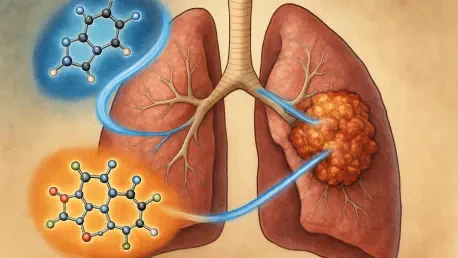
We are joined today by Ivan Kairatov, a biopharma expert with deep insights into the technological innovations shaping the future of medicine. We will be exploring the recent expansion of a groundbreaking protein discovery platform into Asia, discussing its installation at two leading Taiwanese

A groundbreaking discovery has unveiled a class of small molecules that effectively teach the body to eliminate its own disease-causing components, a development that could rewrite the rules for treating some of the most stubborn medical conditions. An international team of scientists has

The convergence of advanced computational intelligence with molecular biology has fundamentally altered the paradigm of vaccine development, shifting it from a process of slow, empirical discovery to one of rapid, data-driven design. The application of Artificial Intelligence (AI) in this field

A formidable new strategy has emerged in the fight against a particularly stubborn form of lung cancer, offering a beacon of hope for patients whose tumors have developed resistance to frontline treatments. Researchers from the Medical University of Vienna have pioneered a novel combination therapy

A conservative West Virginia lawmaker and a progressive California governor rarely find common ground, yet they have become improbable allies in a sweeping national movement to fundamentally reshape what Americans eat and how public health is managed. This decentralized but powerful crusade,

For one of the most aggressive forms of breast cancer, the very molecular machinery that fuels its relentless growth has now been identified as its most critical and exploitable vulnerability, opening a new front in the war against this disease. This groundbreaking discovery shifts the focus from